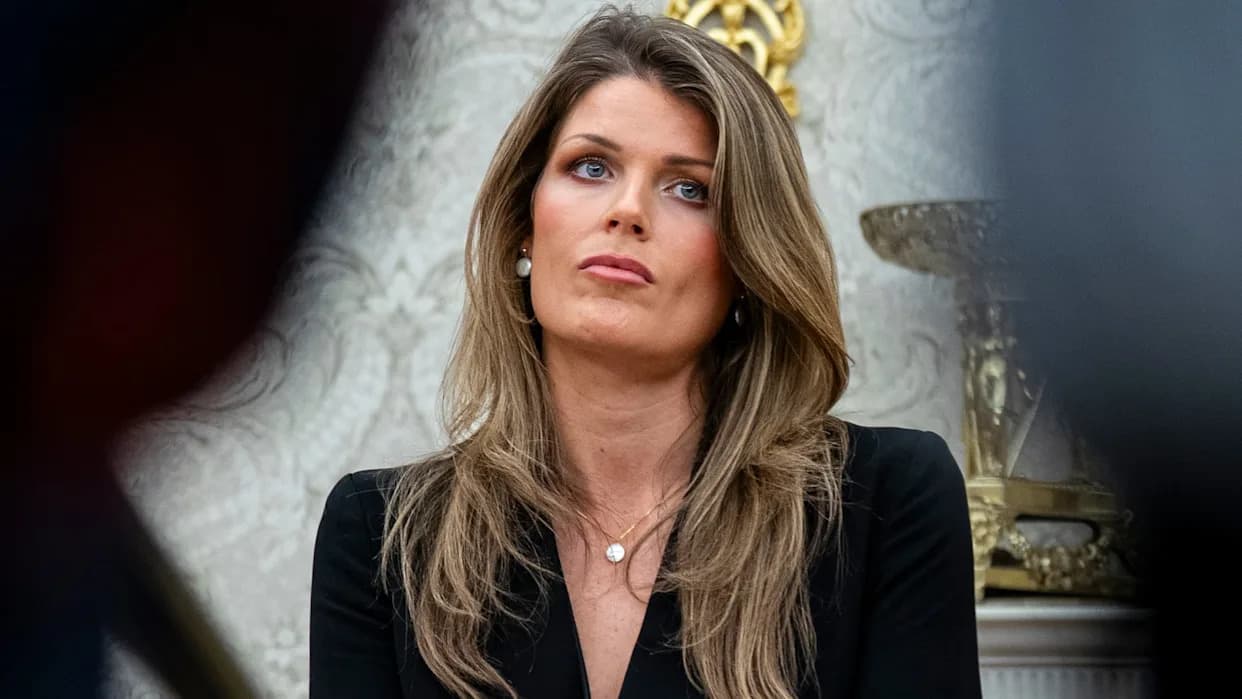The Justice Department denied allegations that interim U.S. Attorney Lindsey Halligan committed misconduct while securing an indictment against former FBI Director James Comey and asked a judge not to compel disclosure of secret grand jury materials. Magistrate Judge William Fitzpatrick flagged potential procedural errors — including use of old evidence without a new warrant and possible exposure of privileged material — and ordered the materials turned over, calling it an "extraordinary remedy." A federal judge temporarily paused that order while the DOJ's objections are considered. Comey has pleaded not guilty and his lawyers have moved to dismiss the case as a "vindictive" prosecution.
DOJ Defends Prosecutor in Comey Indictment as Judges Weigh Grand Jury Disclosure

The U.S. Department of Justice on Wednesday rejected allegations that interim U.S. Attorney Lindsey Halligan engaged in misconduct while securing an indictment against former FBI Director James Comey, and urged a federal judge not to compel disclosure of secret grand jury materials to Comey's defense team.
In court filings and public statements, the department defended Halligan — who was appointed by President Donald Trump to serve as interim U.S. Attorney for the Eastern District of Virginia after her predecessor raised concerns about the strength of the evidence in the case.
“The U.S. Attorney and grand jury in this case operated exactly as the law requires,” a Justice Department official said. “Nothing in the record suggests misconduct, irregularity, or confusion. Claims to the contrary are simply unsupported.”
The department's defense followed a ruling from U.S. Magistrate Judge William Fitzpatrick in Alexandria, Virginia, who found that Halligan may have made significant legal errors while presenting evidence and instructing grand jurors. Fitzpatrick ordered prosecutors to turn over the grand jury materials to Comey's lawyers, describing such disclosure as an "extraordinary remedy."
Among the procedural concerns cited by Fitzpatrick were prosecutors' review of evidence seized years earlier without obtaining a fresh warrant, and allowing an FBI agent to testify after possibly being exposed to material covered by attorney-client privilege. Fitzpatrick also questioned whether the current version of the indictment was presented to the full grand jury after the panel had rejected a count in an earlier draft, and said statements by the U.S. Attorney to jurors could have infringed on Comey's legal rights.
At a hearing before U.S. District Judge Michael Nachmanoff, prosecutors acknowledged the current indictment was not presented to the entire grand jury but said it had been signed by the jury foreperson — an admission Fitzpatrick said undermines confidence in the indictment's validity. Nachmanoff temporarily stayed Fitzpatrick's order while the Justice Department's objections are considered.
Comey, charged in September with making false statements and obstructing a congressional investigation, has pleaded not guilty. His attorneys have asked Judge Nachmanoff to dismiss the case, arguing it is a vindictive prosecution intended to punish Comey for criticizing the president.
In a court filing, prosecutors argued the magistrate's recommendation rested on "misreadings of the transcript, incorrect legal conclusions, and factual assumptions that the record directly disproves," and added that the presentation of the case to the grand jury was routine and proper.
The dispute now centers on whether alleged procedural missteps are serious enough to require disclosure of secret grand jury materials and whether they threaten the validity of the indictment. The case remains active as judges weigh competing claims about grand jury practice, privilege and prosecutorial conduct.
Reporting by Sarah N. Lynch.
Help us improve.
























